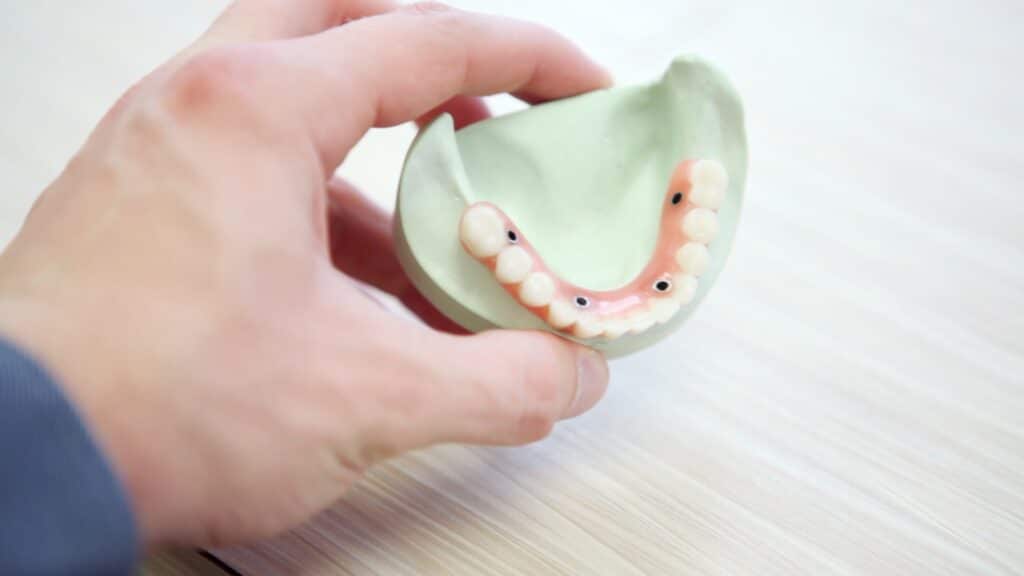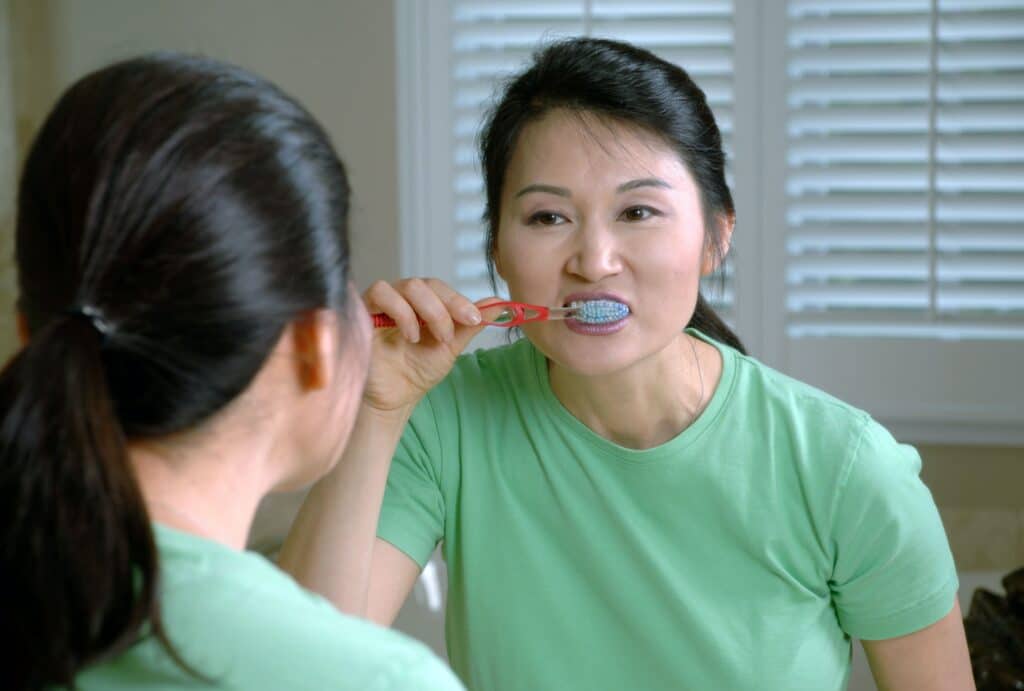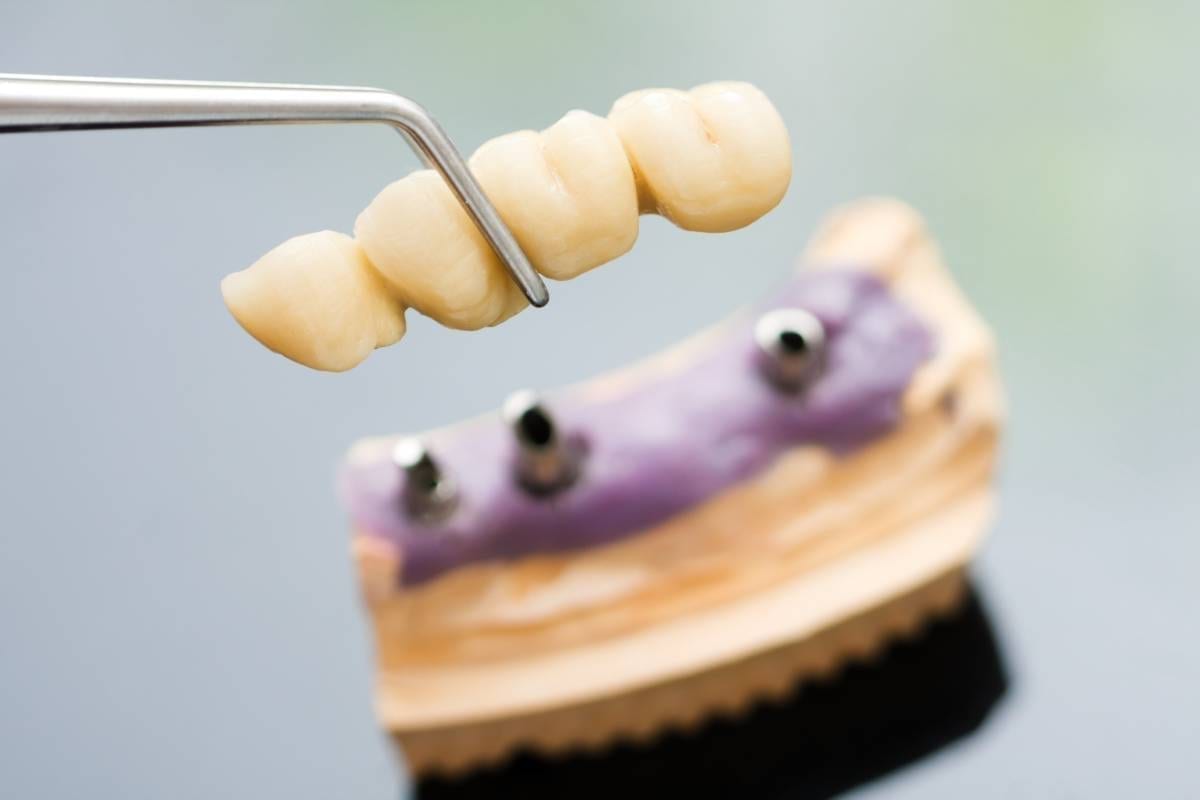Existing research places the lifespan of All-on-4 dental implants at around 10 years. That said, it’s important to note that individual experiences may vary. Factors such as dental hygiene, overall health, and the patient’s ability to adapt to the prosthetics can influence the longevity of the implants.

In this concise, yet complete guide, we’ll look at the question “How long do All-on-4 dental implants last?” You’ll discover:
- How long they last
- The factors that affect the lifespan of dental implants
- Signs that All-on-4 implants may be failing
- Tips on how to make these implants last longer
Read on to get this information and find helpful videos and links so you know what to expect when it comes to the lifespan of All-on-4 dental implants.
How Long Do All-on-4 Dental Implants Last on Average?
When considering All-on-4 dental implants, one of the most common questions is about their longevity. With a significant cost in both money and time, you want to ensure that the results will last.
On average, All-on-4 dental implants have been known to last over 10 years, and likely a lot longer than that. However, the exact lifespan varies depending on individual circumstances.
It’s important to remember that the All-on-4 treatment concept dates back to 1998, so there is limited research on the All-on-4’s durability beyond the 10-year mark. That being said, many patients experience relatively few complications with both the implants and their accompanying dentures.
Some data shows these can last 20 years with proper care and have a 90% – 95% success rate at the 10-year mark.
Factors That Affect Lifespan of All-on-4 Dental Implants
Quality of Oral Hygiene
Proper oral hygiene plays a significant role in the lifespan of All-on-4 dental implants. Brushing and flossing your teeth regularly helps maintain dental hygiene and prevent infections that may compromise your implants.

Using an interdental brush will help clean around the implant and abutment area. Ensure you follow your dentist’s instructions on the best oral care practices for your implants.
Lifestyle Habits and Health Condition
Your lifestyle choices and overall health also impact the longevity of your All-on-4 dental implants.
Smoking, tobacco, and excessive alcohol consumption can negatively affect the healing process and ultimately reduce implant success rates. Smoking in particular reduces blood flow and can hinder the integration of implants with the jawbone.
It is crucial to adopt a healthier lifestyle to support the longevity of your dental implants.
Other health conditions, such as diabetes and osteoporosis, can also affect your implants’ lifespan. This is because of their potential impact on your jawbone density and healing capabilities. Controlling your health conditions and maintaining healthy habits are essential for an extended implant lifespan.
Maintenance and Regular Dental Visits
Another critical factor in the lifespan of your All-on-4 dental implants is the routine maintenance and dental examinations.

Make sure to clean your All-on-4 dental implants the way your dentist tells you to. Also, go to the dentist often for check-ups. This helps catch any problems early on.
You’ll get some pictures taken of your teeth and jaw to make sure everything is okay. Always talk to your dentist if you have questions or worries about your new teeth.
Bone Quality and Patient Age
How good your jawbone is and how old you are can really affect how well your new implants will work and how long they will last.
As you get older, your jawbone can get weaker, which might make the fake teeth less stable. Some people might need extra bone added to their jaw to make it stronger before getting new teeth.
A strong jawbone helps your new teeth last longer, so make sure to talk to your dentist about whether you might need extra bone or other treatments.
Signs of Potential All-on-4 Dental Implant Failure
Symptoms and Indicators
If you notice pain lasting longer than 10 days after your All-on-4 dental implant surgery, it may be a sign of implant failure. Watch out for signs of infection, such as redness, swelling, or pus discharge around the implant site.
Nerve or tissue damage may occur if an implant is placed too close to a nerve, causing numbness, tingling, or pain. Early dental implant failure can happen within the first three to four months of the procedure.
Treatment and Prevention
In case you suspect a dental implant failure, contact your dentist or seek professional care. They may prescribe antibiotics to treat potential infections, adjust the implant, or remove it if necessary.
To prevent implant failure, carefully follow your dentist’s post-operative care instructions diligently, maintain proper oral hygiene, and attend regular dental check-ups.
Tips For Making Your All-on-4 Implants Last
All-on-4 dental implants can last for many years with proper care and maintenance. To make sure your implants stay in optimal condition, follow these tips:
- Maintain good oral hygiene: Brush and floss your All-on-4 implants twice daily, just like you would with natural teeth. Use a soft-bristled toothbrush and non-abrasive toothpaste to keep the surface of your implants clean.
- Regular dental check-ups: Visit your dentist regularly for check-ups and cleanings. This is important for maintaining the health of your implants and your remaining natural teeth. Your dentist can also monitor your implant for any adjustments or maintenance needed.
- Avoid hard or sticky foods: Although All-on-4 dental implants are strong and durable, excessively hard or sticky foods can still cause damage. Avoid chewing on ice, hard candies, and sticky treats to prevent any unnecessary stress on your implant-supported prosthesis.
- No smoking: If you are a smoker, consider quitting for the sake of your dental implants. Smoking can negatively affect the health of your gums and bone, leading to possible complications with your All-on-4 dental implants.
- Manage oral conditions: If you have any oral conditions such as gum disease or bruxism (teeth grinding), make sure to address these issues to prevent negative effects on your All-on-4 dental implants. Your dentist can recommend appropriate treatments and interventions to help you maintain the health of your gums and supporting structures around your implants.
By following these tips and maintaining a good oral hygiene routine, you can help ensure the longevity of your All-on-4 dental implants. Remember, proper care and regular dental visits will contribute significantly to the long-term success of your implant-supported prosthesis.








